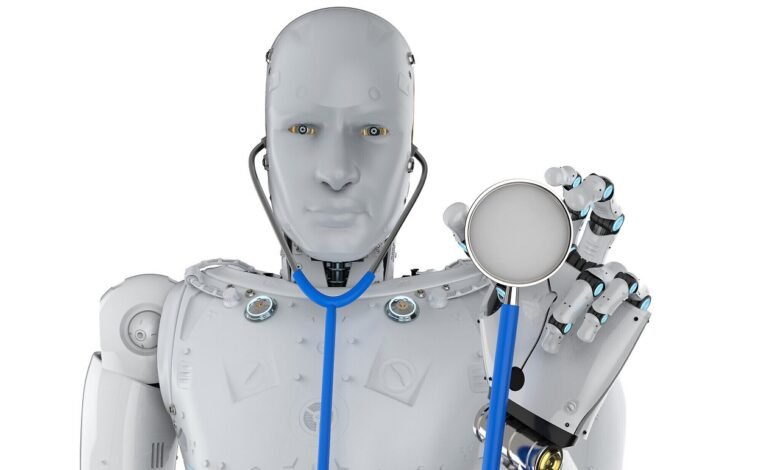Medical Robots: Future of Surgeries and Patient Care

The fusion of robotics and healthcare has given rise to an innovative medical treatment, diagnosis, and patient care era. Medical robots have started to play an increasingly crucial role in various aspects of the medical field, revolutionizing practices and promising enhanced precision and care.
Introduction to Medical Robots
Medical robots are robotic systems explicitly designed to help doctors, nurses, and other healthcare providers provide patient care and treatment. They range from machines that assist with intricate surgeries to robots that help deliver medication and supplies within hospitals.
Roles and Applications
- Surgical Robots
One of the most notable applications of medical robotics is in the realm of surgery. These robots assist surgeons in performing procedures with extreme precision and minimal invasiveness. As an illustration, the da Vinci surgical system enables it to operate with enhanced vision, accuracy, and control.
Rehabilitation Robots
Rehabilitation is a critical phase for patients recovering from strokes, injuries, or surgeries. Medical robotics in rehabilitation, such as the Lokomat, assist patients in regaining their physical abilities, offering consistent therapy and tracking progress.
Hospital and Pharmacy Robots
Efficiency is crucial in hospital settings. Medical robotics like TUG autonomously deliver medicines, samples, and other essential items within hospitals, reducing wait times and human error. In pharmacies, robots can sort and dispense medications, ensuring accurate delivery to patients.
Telemedicine Robots
Medical robotics provide telemedicine solutions in areas where medical expertise is scarce or in situations like the recent pandemic where in-person consultations can be risky. These robots, equipped with cameras and communication devices, allow doctors to interact with and diagnose patients remotely.
Advantages of Medical Robots
The integration of medical robotics offers numerous benefits:
- Enhanced precision during surgeries and procedures.
- Reduction in human errors, especially in repetitive tasks.
- Efficient delivery of medicines and supplies in hospitals.
- Access to medical care in remote or inaccessible areas.
- Personalized patient rehabilitation and therapy.
Challenges and Ethical Concerns
However, the deployment of medical robotics is not devoid of challenges:
- High initial costs of robotic systems.
- Need for specialized training for healthcare professionals.
- Ethical concerns regarding patient data privacy.
- Potential job displacement in the medical field.
The Future of Medical Robot
As technology advances, the role of medical robotics is set to expand. We might see robots assisting in more specialized surgeries, AI-powered robots aiding in diagnosis, and even robots in home settings assisting with patient care and medication reminders.
Conclusion
Medical robots are undoubtedly transforming the healthcare landscape. Their integration promises enhanced efficiency, precision, and patient care. However, as with all technological advancements, it’s essential to address challenges and ethical concerns to ensure they genuinely benefit healthcare professionals and patients alike.
Rate us our Post (Medical Robots: Future of Surgeries and Patient Care)How much do you like our Article








